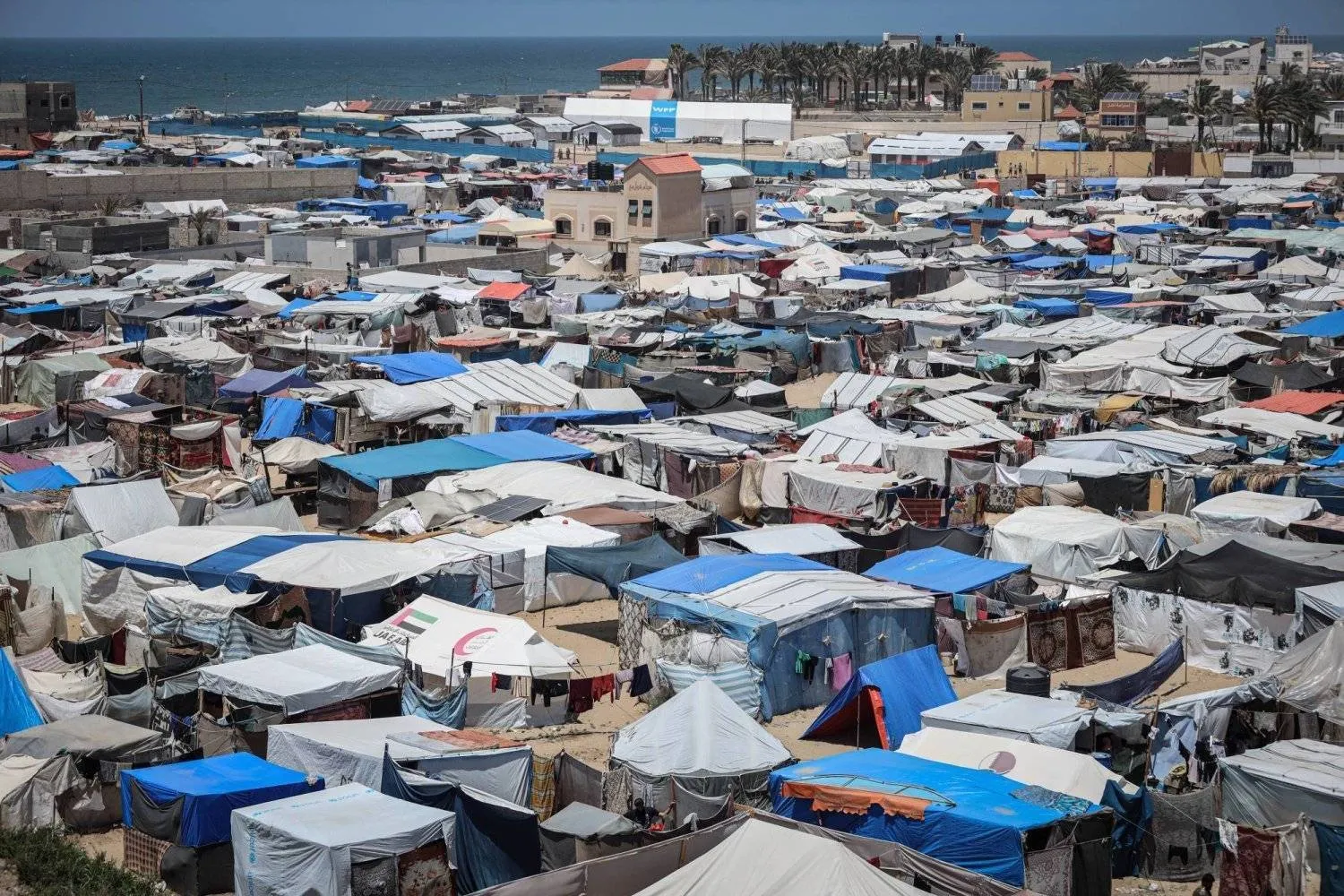The civil defense agency in Hamas-run Gaza said an Israeli strike Sunday hit tents at a declared safe zone in the Palestinian territory's south, killing at least five people.
A witness told AFP a newborn was among the dead in Al-Mawasi near Khan Yunis city, where tens of thousands of displaced Palestinians have sought refuge from the war, now nearing its 11th month.
Since Monday, Israeli forces have operated in and around Khan Yunis including in parts of the coastal area of Al-Mawasi.
"Today, the Israeli occupation targeted... the tents of displaced people on Al-Istable street in Al-Mawasi," Muhammad al-Mughayyir of the Gaza civil defense agency told AFP.
"Five martyrs and seven wounded have been transferred to Nasser hospital" in Khan Yunis, he said.
Contacted by AFP, the Israeli military said it was looking into the reports.
Miriam al-Astal who lives in Al-Mawasi said a newborn baby was killed.
"We were sitting in the tents... when suddenly we heard an explosion," she told AFP.
"I swear" there was no militant activity in the area, she said.
Israel had warned on Monday its forces would "forcefully operate" in the Khan Yunis area -- from which troops withdrew in April -- and on Saturday the civil defense agency said that 170 people have been killed by the renewed fighting and military operations.









